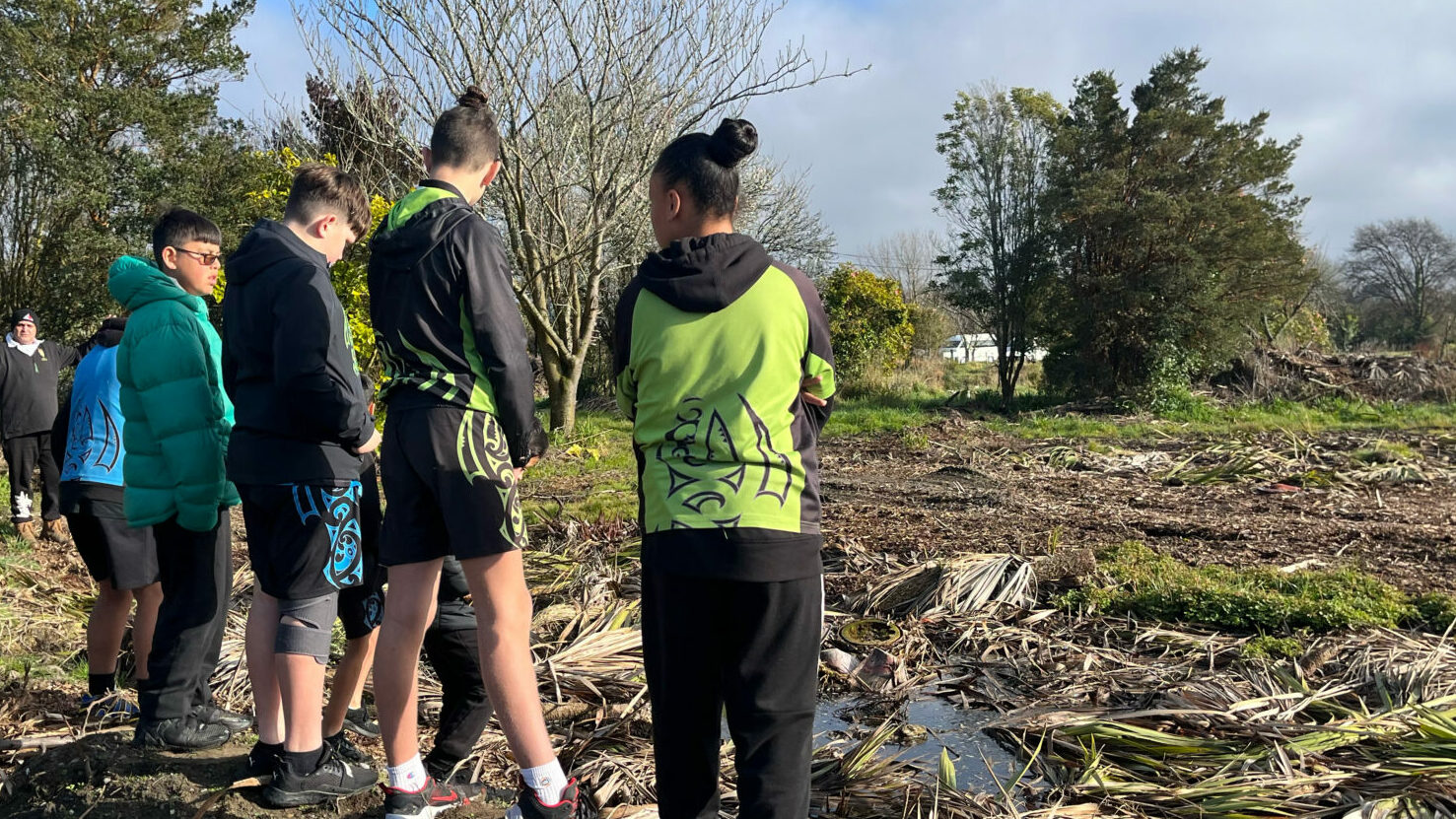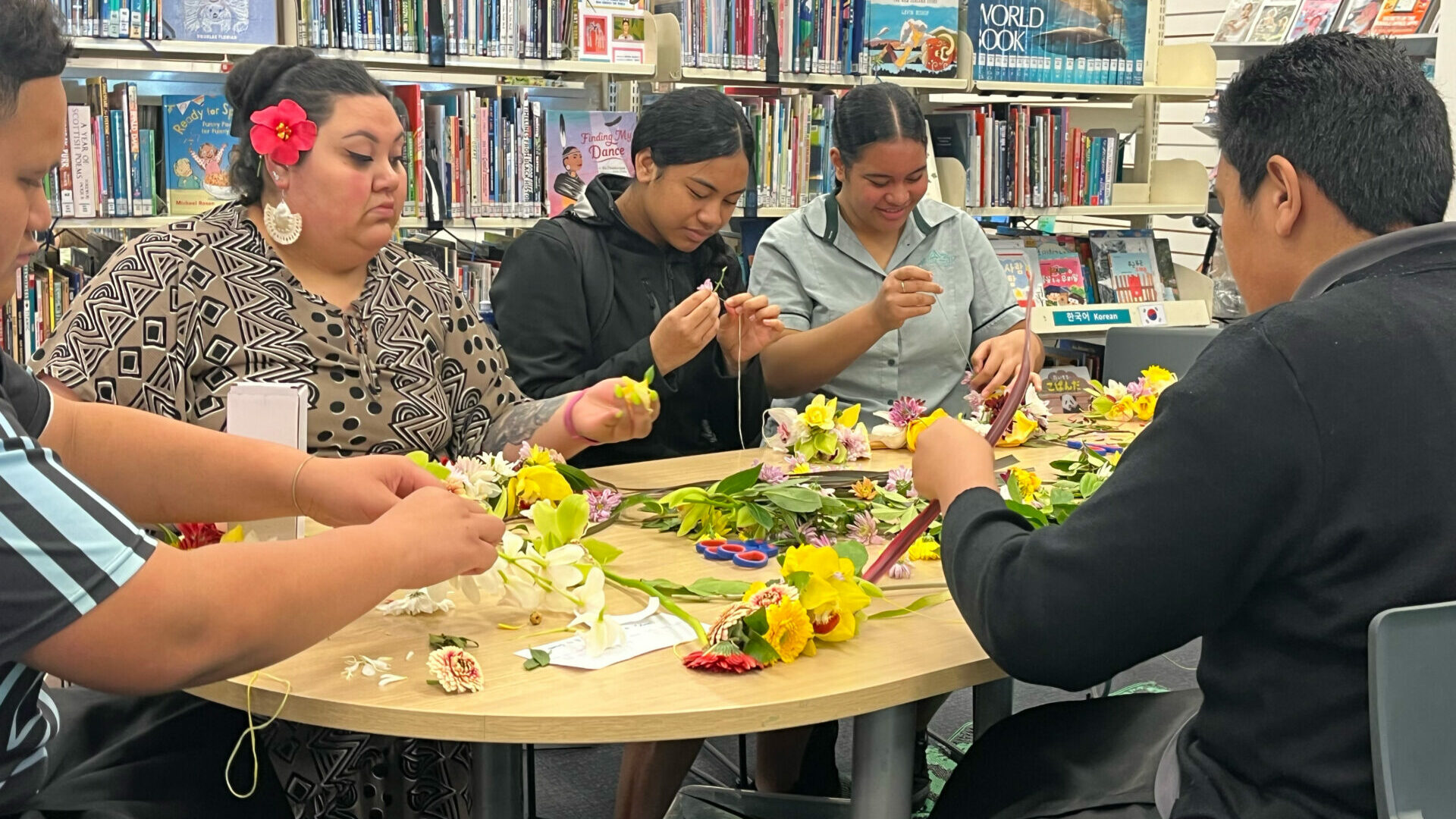- Impacts & Adaptation
Research Programme
- Sacha McMeeking
University of Canterbury - Steve Ratuva
University of Canterbury - Bronwyn Hayward
University of Canterbury - View the full team
Project Leaders
-
Budget
$400,000 -
Duration
June 2022 — May 2024
-
Completed project
Mana Rangatahi: Climate change decision-making
Growing Indigenous youth participation in climate change decision-making
Young Māori and Pasifika are among the most exposed to climate risk in Aotearoa, and view climate change as the next challenge in an ongoing experience of colonisation. Many are at the forefront of climate action and appear in international climate forums posing solutions. Yet here at home, young people who want to engage in decision-making face many barriers.

The world young people inherit will require skills and resilience of a different order. Our research worked alongside rangatahi aged 10-14 to apply their knowledge and preferred ways of addressing climate change as a complex systemic, social, political and ecological problem. Instead of focusing on individual behaviour – as much current research does – we sought to support young people and their families to find new ways to live under increasing climate extremes.
Our research centred around intergenerational, ‘deliberation+action’ methods of storytelling to ‘back-cast’ pathways for transformative, culturally responsive climate action in local communities.

Our research progressed in three steps:
Step one: We worked with two Canterbury schools at high risk of flooding, and their communities, to develop our research protocols. We gathered stories and values that might inspire action, and planned our hui | talanoa | tala. We undertook a baseline survey of community attitudes.
Step two: We hosted our climate hui | talanoa | tala, working with rangatahi and adults to “back-cast” climate action pathways, inspired by the stories and values that have sustained communities over time. These pathways were informed by NIWA’s regional climate scenarios.
Step three: We hosted regional hui to share local pathways and develop digital stories and tools for collective action. We undertook an exit survey to monitor attitude change, to evaluate ourselves, and to ask for future recommendations. Later, we shared these digital tools with schools and local councils, aiming to support communities as we work for more resilient climate futures.
Keep reading?
Check out this project on Culture and Climate Change, or this project which worked with young people to activate climate understandings through p`ūrakau, waiata and kapa haka.
A further summary of this project can be found here.
This project in the media:
- Indigenous knowledge must be prioritised in climate response, Midday Report RNZ, March 2022
PROJECT TEAM
-
Sacha McMeeking
University of Canterbury -
Steve Ratuva
University of Canterbury -
Bronwyn Hayward
University of Canterbury -
Yvonne Crichton-Hill
University of Canterbury -
Sam Dean
NIWA -
Kate Prendergast
University of Canterbury